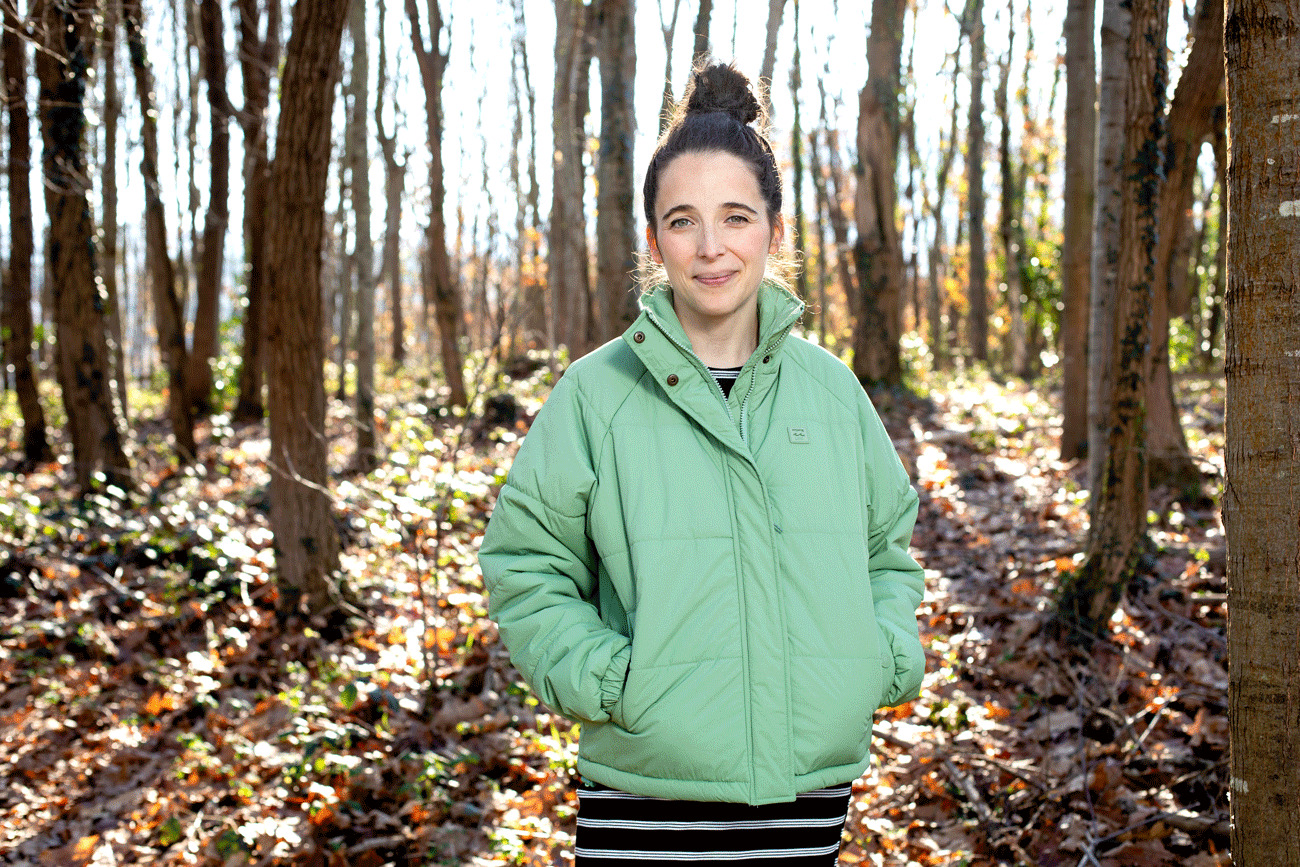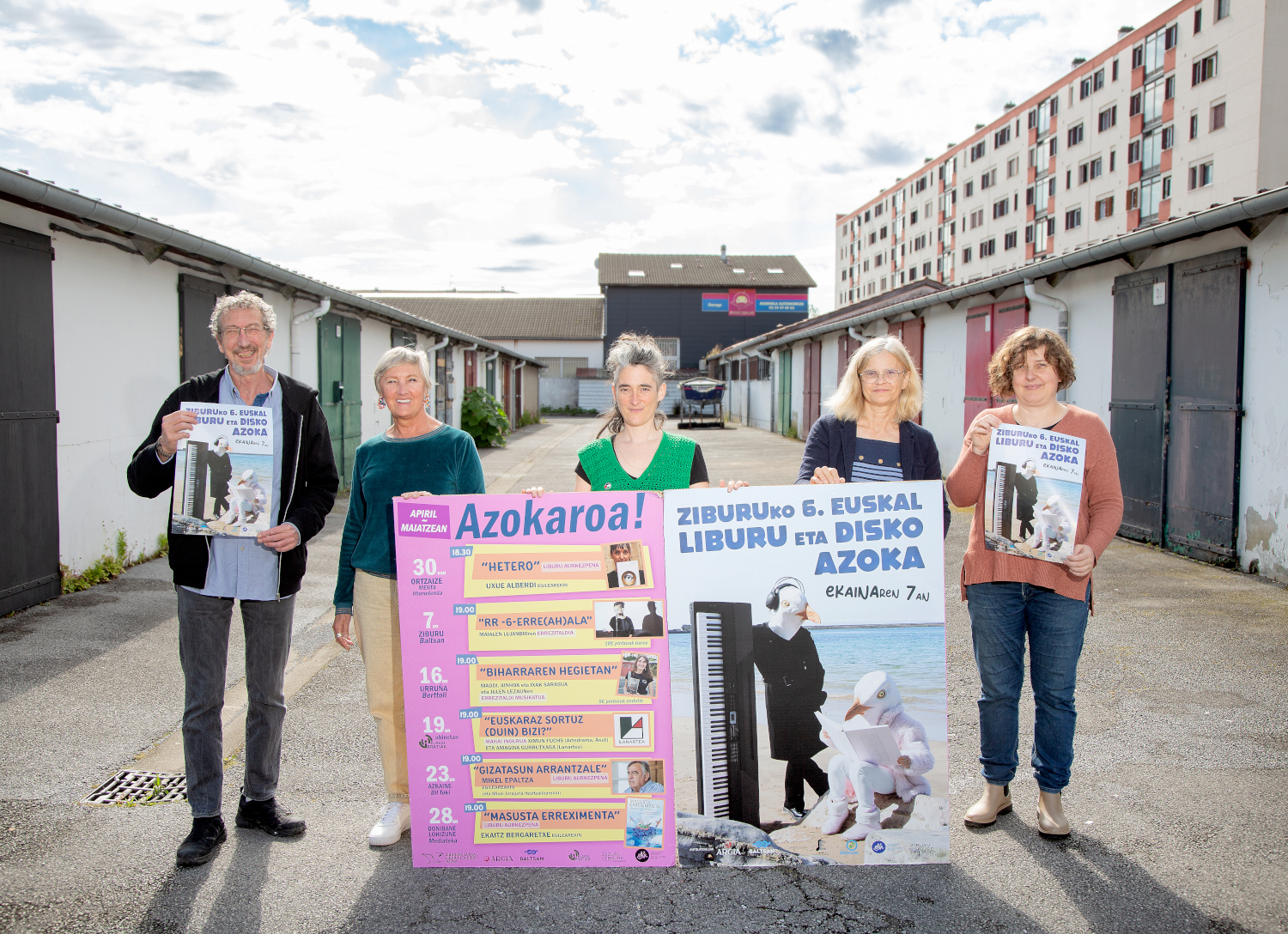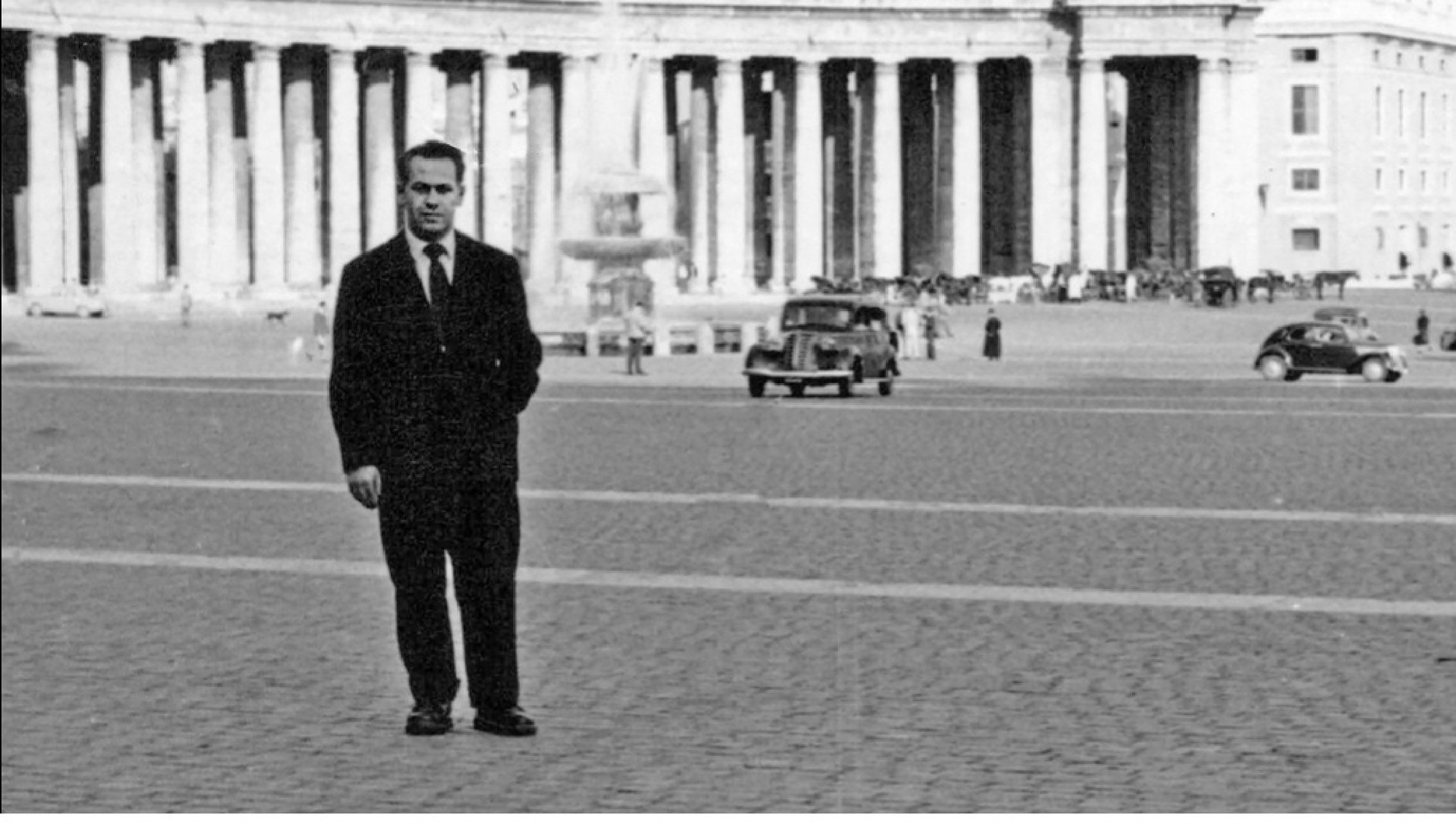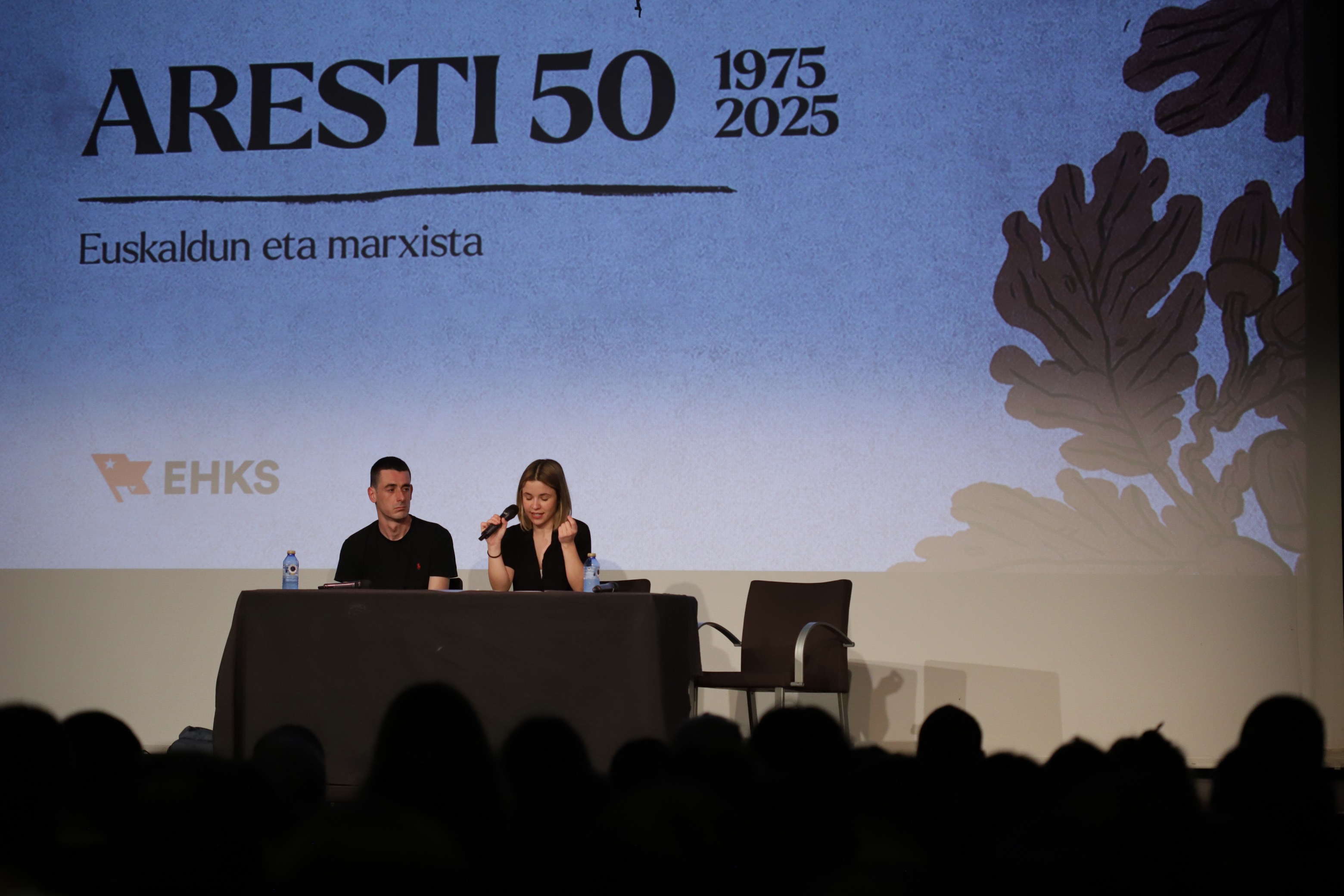"It's very important to write books that talk about our things."
- The day has been unleashed in Getaria, as no one is still playing in the open pediment. You hear the gulls. The bells of the nine are about to ring. We have taken the step back; we are going a calmer step, with a more temperate environment and with the possibility of working on a freer subject.

Walter Benjamin, Baudelaire, Vila-Matas… Robert Walser’s Der Spaziergang (El Paseo) is paradigmatic. There he does not use the walk, or the walk, for inspiration, but turns a walk into a literary theme. Have you had this temptation?
No, in general, no. I have appeared in some column, there are implicit mentions, ideas created during the journey, etc., but I have explicitly never done so.
Walser's Der Spaziergang is not in Basque.
No, I don't know. Walser's is unique in Basque: Jakob von Gunten (1909) Translated by Edorta Matauko (Erein). It would be good if the other were also translated…
Have you never seen yourself at work?
I have done some translations, but I do not see myself as a translator. In addition, I am very clumsy for other languages.
Clumsy? You master four or five languages, and Latin…
Well, mastering is to say a lot, I fix them, but I'm not fast for those things; in recent years, I also have hearing problems, and that also influences a lot. I make it easier for me to read.
If you did, what book would you bring to the Basque?
I would return many, some are already translated. I think that is almost impossible, but it has occurred to me many times in Italian that I would bring Quer Pasticciaccio brutto de Via Merulana de Carlo Emilio Gadda. It's a detective textbook, but it's written in a totally breaking way. It plays a lot with Italian, in a creative and disruptive way. It's great. In Italian it is difficult, and it would be difficult to translate it into Basque. I know I'll never do it, but it would be a good exercise to create from language itself.
Translate Montale to Basque for the Munduko Poesia Kaierak collection. Also of Italian, in poetry. What exercise had that been?
I remember I was translating a poem from Montale when I realized that the same copy could be read in two keys: on the one hand, in a fisherman's language and, on the other, in a rustic language. In the lexicon of this poem there are several polysemic words. And it can be the same as a land poem as a sea poem. One example is the word albero. It has a sense of the tree or tree and another of the mast, of the boat. It is precisely this game that is difficult to translate, and at the same time a nice challenge. Without this game the poem doesn't have much value.
Do you perform translation exercises as writing training?
Yes, at first I did a lot, but I still did. I do the translations to write any book, both here and there, as well as for this essay Itzuliz usu begi. There are a lot of citations, authors that are cited by their name and different records. So, we're constantly coming back. The citations that are taken are usually quite condensed, which requires a return effort. In a very short time they are the ones who say a lot and have their difficulty to return.
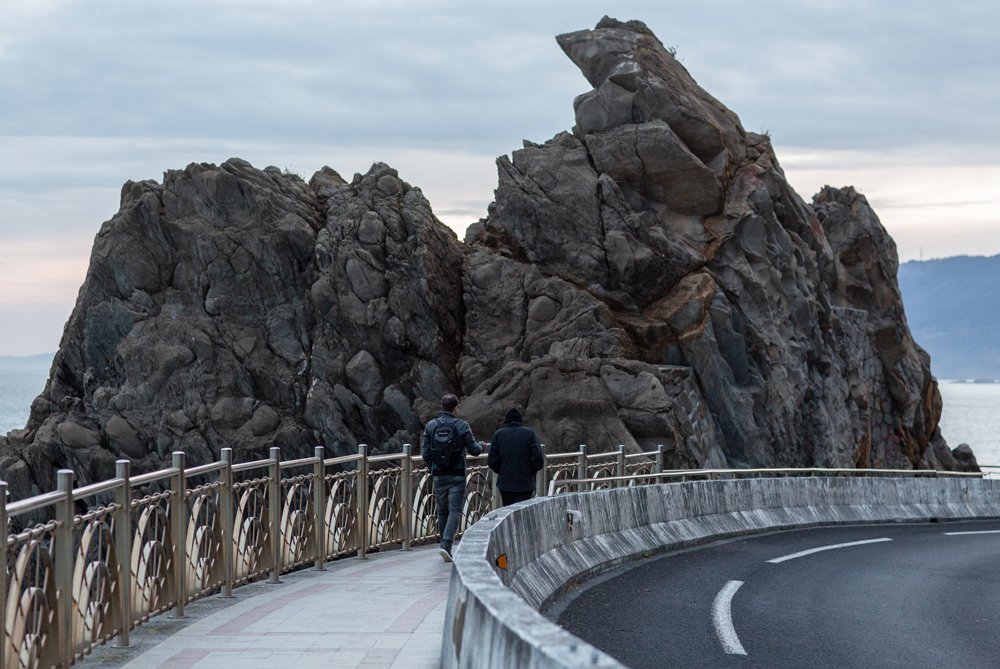
In the book you say there are two ways to bring quotes: one from Montaigne and one from Axular. Where are you?
I'd put it with Montaigne, if I wanted to settle somewhere. Montaigne returned the citations. Axular, however, gave explanations in a didactic way, but almost sermon, for fear that the reader could not understand it. To say the same idea in two or three ways, etc… is not my form, no.
Speaking of training, in the book you say that if a young man asked you for advice, you would tell him to read the good translations. But you add in parentheses that you do not believe that there is anyone who approaches it. Why do you say that?
Because I also didn't go to ask anyone for advice when I was young. If I had to say something, I would tell a beginner never think he knows a language. If you think or, even without thinking, practice as if you knew the language, you won't go too far. I have learned more Basque in the last twenty years than in all the previous ones. 50 years in this profession, studying every time, and I still see a horizon ahead, and to learn so much. But little time. There is one thing that we do not realize many times: how we are alive, how we live a language every time, how we do it, and that expressiveness requires us to do it every time: if you tell someone continuously “I love you”, “I love you”, “I love you”… That is nothing, but dust. Language has a thousand ways of saying things, and when an expression is exhausted, when it doesn't stop, when it breaks, we invent something without realizing it.
What relationship do you have with young generations? Do you try to follow what they do? Do you find them?
I have references from young writers, and I follow them carefully. As a young man, I was also a professor at Ikastola and at the teaching school. By being in contact with the students you learn first, you are close to the youth and you feel alive. As time goes by, we lose that relationship, spend more time getting at home, we lose communication, if not with very close people, with the family, etc. Yes, I do not have that relationship with young people.
Do you have the opportunity to talk about your work with people, in groups of readers, in the Garoa library of Zarautz…?
Yes, I have those possibilities, but I can't get to all the sites I want. And it happens that these kinds of jobs discourage you from creation. However, it is the first time in my life, in my trajectory, that I have been involved in my work, in my work and focused on the writing of the book. It has been an intense work. It consists of short pieces in which I have worked in the search and elaboration of rhythms, depths, records, ironies. Before I retired, I had to win the beans, and I always had the breads won...
And lack of time.
I have had time to dedicate all the time to two books: one with Otto Pette and the other with the latter. I wouldn't have been able to write this book had I not been retired. Why? Because it asks you for intensity. Because this book is not going to pay at all for the work done. Because an essay doesn't sell at all like a novel, and it's also an essay that talks about us and in Euskera, so in principle, it can have very little impact out there. Paradoxically, even if the subject is the translation, the translation is impossible. Not because it is impossible, but because it lacks interest. In the case of Otto Pette, I got a scholarship from the Ministry of Culture of Madrid. If it wasn't for that, I couldn't do it. I mean and claim that in order to write literature, we need a serious scholarship system in our country. Otto Pette cannot be made in writing on weekends. I, at least, can't.
...
Yes, it takes time to concentrate. On the other hand, it's very important to write books that talk about our things. The literary system has a commercial component that does not allow healthy literature, unless it is a university system. But it is precisely the most academic system that exists and the one that practically says nothing about the perspective of the Basque Country. Written works on our problems, on our keys and on the artistic perspective of literature are of great importance.
You've inclined to write in what you call tesela, fragmented texts. Why?
I've found a way to tell things. A dozen years ago, I read a book by Cceslaw Milosz, a kind of autobiography of his own, an intellectual autobiography. It's called Abecedario, in Spanish. The structure became very interesting to me: I give it as a alphabet. The alphabet has the logic of a neutral order, the order is ordered by the initial letter of the words. But, what a curious thing!, you're giving you chronological jumps through those words, even more than in mine. Right now, old age, now childhood… You dance, when you move forward in the book, you go back to an account, but you already take another meaning. I find this game very interesting.
You mentioned the autobiography. Will you ever write?
As I wrote this book, I realized that I've practiced the autobiography, the intellectual autobiography, to put it in some way, especially as far as Euskera is concerned. There are many statements. I was worried about overexposure, unnecessary overexposure. I asked around me, and as I was told no, I continued. I also wrote the roles of experience (2010), with which there are enough autobiographical elements. Suppose that the main elements of my intellectual autobiography are not developed but pointed out.
The temple that takes the walk. In these hyper-technological and accelerated times, thought has also changed. How does Anjel the creator affect the haste of these times?
We're immersed in a tremendous paradigm shift, almost without realizing it. I always have a very quiet life, but I work in front of the computer, and I carry my phone, and unintentionally, that's what causes interference. The walk gives me a quiet, I can say until noon: “Time is mine.” And that's a lot to say. Our mental structures and ways of reading are changing. We read and think in a fragmentary way. Italo Calvino said it was not yet on the Internet. Even more so. The new structures are reflected in the works of juvenile writers, etc. Unfortunately, we do not have time to read things that last a long time. It seems that the 19th century novel has been exhausted. That's there, it's a monument and it's given a lot.
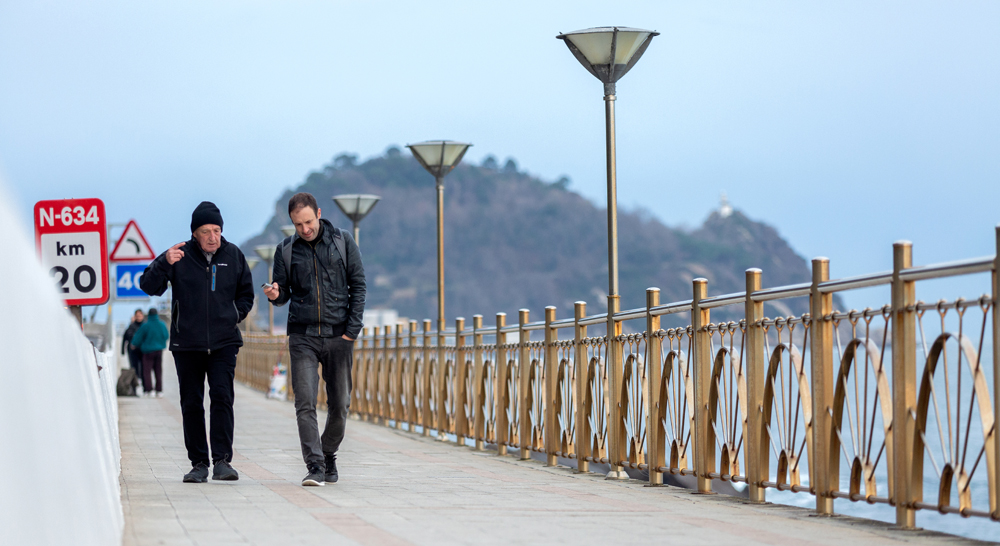
In the meantime, it is nine when we have arrived at the pier of Zarautz. The waves bring something more force than they do at dawn. We took advantage of the stop to make some photos. On the right is the hill of Santa Barbara. The journalist tells him that there is the first book he has ever read in Basque: A Basque on Mars. “Oh, yes, from Zubeldia,” he said suddenly. On the other hand, she confesses that it was in that small port where she read her first book during a summer of adolescence: Tobacco Days (1987) “Wow, I think it’s one of the worst I’ve ever written!” We're going to finish the journey, we've gone and we've turned around, but before we finish, a thorny issue has gone to the port of letters.
Peter Handke received harsh criticism when he received the Nobel Prize. The issue of the distinction between the work and the author has been raised again. For some, they are inseparable, for others, political and moral corruption has devoured both literature and art today. What do you think?
Handke's political march has many edges. Among its positive positions, I believe, is the ferocious criticism of the criminal hypocrisy of various Western presses and politicians, emphasising their responsibility in the Balkan war. But Milosevic’s defence calms many of his interesting thoughts. They're in their books. Handy has a lot of novels and very sharp essays. Hemingway also has good novels, although in his letters he was proud to have killed several unarmed German soldiers. The dissociation of the artist and the work is difficult as long as the memory is alive. But I think the hundred-year-old readers will understand Handke's moral dilemma better than today's readers. The difference is that in Hemingway's letters, there is no moral dilemma, but moral idiocy.
But the attitude of focusing on the morality of the creator is today above the work.
Yes, I think we live in the time of political justice. I think we live in the society of grief in the middle of the day. This concept is not new; L’Ère du soupçon (Times of Suspicion), written by Nathalie Sarraute nouveau roman in 1956, after the end of the Second World War. We came from World War II, nobody trusted anybody. And that's intensified. In other words, we live in the age of hypocrisy. The important thing is the image and everyone wants to sell their image, even if they say the opposite of what they think. Taking care of the image is being politically correct. “At the moment, it is fitting for me to say this in these circumstances, which is what is today in vogue and ...”. Rather than a critical society, it is a society based on fear, too many stimuli and the fear of all, they control and control us.
- Zarautz-Getaria: "The doors open to the torpeza without
nuances" - Getaria: "There is a lack of thinkers from the Basque Country up there."
Now that everyone has become more Franciscan than the Pope, it’s worth remembering our unsurpassed classics. There was one in the 17th century, his grace was Arnaut Oienart. And since we can’t immerse ourselves in all his works, today we will praise O.ten youth in... [+]
Aurreko tertuliako galderari erantzuteko beste modu bat izan zitekeen, akaso modu inplizituago batean, bigarren solasaldi honetako izenburua. Figura literarioaz gaindi, pertsonaia zalantzan jartzeko, edo, kontrara, pertsonaiaren testuingurua ulertzeko saiakera bat. Santi... [+]
Astelehen honetan hasita, astebetez, Jon Miranderen obra izango dute aztergai: besteren artean, Mirande nor zen argitzeaz eta errepasatzeaz gain, bere figurarekin zer egin hausnartuko dute, polemikoak baitira bere hainbat adierazpen eta testu.
Martxoaren 17an hasi eta hila bukatu bitartean, Literatura Plazara jaialdia egingo da Oiartzunen. Hirugarren urtez antolatu du egitasmoa 1545 argitaletxeak, bigarrenez bi asteko formatuan. "Literaturak plaza hartzea nahi dugu, partekatzen dugun zaletasuna ageri-agerian... [+]
1984an ‘Bizitza Nola Badoan’ lehen poema liburua (Maiatz) argitaratu zuenetik hainbat poema-liburu, narrazio eta eleberri argitaratu ditu Itxaro Borda idazleak. 2024an argitaratu zuen azken lana, ‘Itzalen tektonika’ (SUSA), eta egunero zutabea idazten du... [+]








